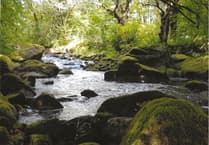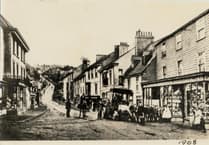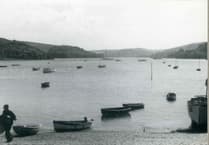A PETITION has been started to protest against a plan by Natural England to cut the numbers of animals on Dartmoor.
The Commoners Associations received an e-mail telling them that the numbers of sheep, cattle and semi-wild Dartmoor hill ponies will be cut by at least a further 50%.
In the introduction to the petition to the Government Sarah-Jane Norris said: “One common has received the stocking rates required to enter a ‘rollover’, a cut of 90%!
“The current level of 60 ponies on that common has been cut to 5.5.
“We have been advised that at least seven commons will be issued a 90% reduction in livestock.”
They’re calling on Natural England to enter into discussions with the Dartmoor Hill Pony Association.
Natural England says three Sites of Special Scientific Interest (SSSIs) on the moor are in a poor state and wants to make changes to how and when commoners graze their stock.
South Hams MPs Sir Gary Streeter and Anthony Mangnall along with fellow Conservative Sir Geoffrey Cox are petitioning the Secretary of State for the Environement, Food and Rural Affairs Therese Coffey for an inquiry.
Chair of the Friends of the Dartmoor Hill Pony Charlotte Faulkner said: “ Like the Dodo, we won’t get them back once they are gone, they cannot just be replaced because the Dartmoor hill ponies have inherent knowledge complemented by their rare genetic makeup, which enables them to survive on Dartmoor and makes them a perfect example for recognition “the right animal for the right place.” There is archaeological evidence, ponies have been alongside cattle and sheep on Dartmmoor for at least 4000 years.
“Natural England has issued limits on grazing, which would have a significant adverse impact on farm businesses (especially tenants) rendering some, if not many, no longer viable.
“It would also destroy the ancient traditional hefted flocks, which instinctively know the boundaries of their own common and are themselves a prized part of the unique life and culture on Dartmoor.”
Sir Geoffrey Cox set up the Dartmoor Farming Forum bringing together people working on Dartmoor, including the chief executive of Natural England, to discuss the agreement last summer.
From this, an action plan was agreed and a brief drafted by Natural England. The MPs say however, that this brief was never distributed to others and ‘it seems that valuable and constructive work has now been abandoned by Natural England’.
The MPs said: ‘In our view, that process must be revived and include an independent examination of the ecological requirements of sensitive sites on Dartmoor and the relevance of traditional grazing to them.”
Dave Slater, South West regional director for Natural England, said: “Dartmoor contains three of the largest moorland SSSIs in the country, but none of these are in a ‘favourable condition’ with rare moorland birds all but disappearing from the area and precious peatland habitats damaged. The right type of grazing is fundamental to restoring the health of these moors. Society needs thriving nature as part of our farming systems and that is especially important in our national parks. Getting that right takes time but can be done.
“With many of the voluntary agri-environment agreements, that pay farmers to deliver for nature, held by Dartmoor’s commoners due to expire this year, we’re supporting the commoners and landowners to help them make any changes to timings and patterns of grazing that might be necessary over the coming five years.’





This article has no comments yet. Be the first to leave a comment.